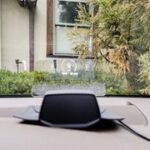Is your car throwing an Obd2 P0172 code? This diagnostic trouble code signals a “System Too Rich (Bank 1),” indicating that your engine’s air-fuel mixture contains too much fuel relative to air. While seemingly straightforward, diagnosing the root cause of a P0172 code requires a systematic approach. Let’s delve into the potential culprits and how to address them.
A “rich” condition essentially means your engine is receiving an excessive amount of fuel or insufficient air for optimal combustion. Your car’s engine control unit (ECU) constantly monitors the air-fuel ratio using oxygen sensors in the exhaust system. When the ECU detects a consistently rich mixture in Bank 1 (which refers to one side of the engine, particularly relevant in V-engines), it triggers the P0172 code. Ignoring this code can lead to decreased fuel economy, increased emissions, poor engine performance, and potentially damage to the catalytic converter over time.
Several factors can contribute to a P0172 code. Here are some of the most common:
1. Faulty Oxygen Sensor:
While the code points to a “rich” condition, ironically, a malfunctioning oxygen sensor itself is often a prime suspect. The upstream oxygen sensor (sensor 1 in Bank 1) is responsible for measuring the oxygen content in the exhaust gas before the catalytic converter. If this sensor is failing or contaminated, it might incorrectly report a lean condition to the ECU, prompting the computer to add more fuel, ultimately leading to a genuinely rich mixture and the P0172 code.
2. Leaking Fuel Injectors:
Fuel injectors are precision components that spray a precise amount of fuel into the engine’s cylinders. If one or more injectors in Bank 1 are leaking, they will deliver excess fuel, causing the air-fuel mixture to become too rich. This leakage can be due to wear and tear, debris clogging the injector, or damage.
3. Fuel Pressure Regulator Issues:
The fuel pressure regulator maintains a constant pressure in the fuel rail supplying the injectors. If the regulator malfunctions and causes excessively high fuel pressure, the injectors will deliver more fuel than intended, resulting in a rich condition.
4. Air Intake Restrictions:
For proper combustion, your engine needs the right amount of air. A clogged air filter is a common culprit, restricting airflow into the engine. Other obstructions in the intake path, such as debris or a collapsed intake duct, can also reduce airflow, leading to a rich mixture as the fuel-air balance is disrupted.
5. Mass Air Flow (MAF) Sensor Problems:
The Mass Air Flow (MAF) sensor measures the amount of air entering the engine. This information is crucial for the ECU to calculate the correct fuel delivery. If the MAF sensor is dirty, faulty, or providing inaccurate readings (typically underreporting airflow), the ECU might underestimate the air intake and inject too much fuel, causing a rich condition and triggering the P0172 code.
6. Engine Coolant Temperature (ECT) Sensor Malfunction:
The Engine Coolant Temperature (ECT) sensor informs the ECU about the engine’s temperature. A faulty ECT sensor that falsely indicates a cold engine, even when it’s warm, can cause the ECU to command a richer fuel mixture. This is because engines typically require a richer mixture when cold for easier starting and smoother running.
Diagnosing a P0172 code requires a step-by-step approach. Here’s a general troubleshooting guide:
-
Visual Inspection: Begin by checking the air filter. Is it excessively dirty? Inspect the air intake system for any obstructions or collapsed ducts.
-
Check for Fuel Leaks: Smell for fuel odors, especially around the fuel injectors and fuel rail. Inspect for any visible leaks.
-
Inspect Vacuum Lines: Although vacuum leaks typically cause lean conditions, in complex scenarios they can indirectly contribute to sensor misreadings. Check vacuum lines for cracks or disconnections.
-
MAF Sensor Inspection: Visually inspect the MAF sensor for dirt or debris. Consider cleaning the MAF sensor using a specialized MAF sensor cleaner.
-
Oxygen Sensor Testing: Testing oxygen sensors often requires specialized tools and knowledge. If you are comfortable with automotive diagnostics, you can test the sensor’s voltage and response time. However, due to the complexity and the need for specialized sockets, this might be best left to a professional.
-
Fuel Pressure Test: A fuel pressure test can help determine if the fuel pressure regulator is functioning correctly. This test also requires specialized tools and safety precautions when working with fuel systems.
-
ECT Sensor Testing: The ECT sensor can be tested using a multimeter to check its resistance at different temperatures.
-
Injector Testing/Inspection: Testing fuel injectors for leaks or proper operation often requires specialized equipment and is typically performed by experienced technicians.
If you’re not comfortable performing these diagnostic steps yourself, it’s always recommended to consult a qualified mechanic. They have the expertise, tools, and experience to accurately diagnose and repair the root cause of the OBD2 P0172 code, ensuring your vehicle runs efficiently and reliably.
